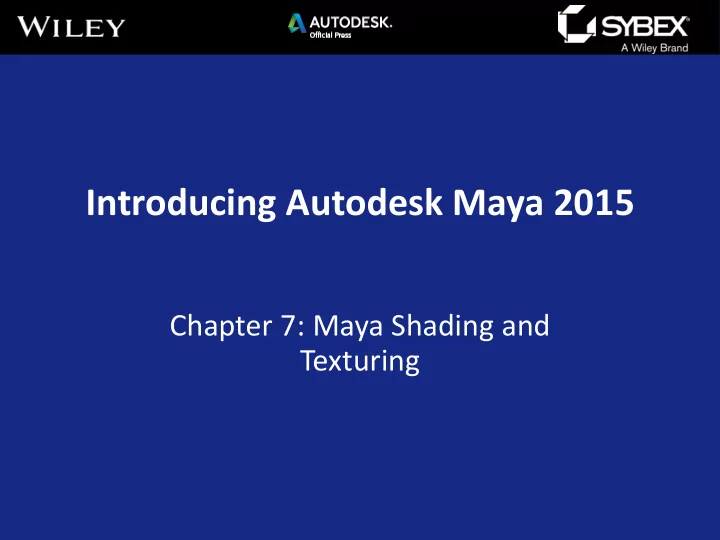

Introducing Autodesk Maya 2015 Chapter 7: Maya Shading and Texturing
Maya topics covered in this chapter include the following: • Shader Types • Shader Attributes • Texturing the Axe • Life, Love, Textures and Surfaces • UVs, oh, UVs! 2
Shader Types • Shader Types are loosely defined by how they reflect light and highlights (specular) • Lambert • Phong • Phong E • Blinn • Anisotropic • Layered Shader • Ramp Shader 3
Shader Attributes • Color • Transparency • Translucence • Ambient Color • Incandescence • Bump Map • Diffuse • Glow • Specular Color • Reflectivity • Reflected Color 4
Texturing the Plane • Adding shaders to simulate the real materials used in the plane • Use a noise texture to simulate the plastic color 5
Life, Love, Textures and Surfaces – Texturing the Red Wagon • Creating shader networks and file textures • Understanding the relationship between meshes and how their textures lay across them is important • Use ramps to position colors and textures 6
The magic of UVs • UVs define the coordinate space along a surface or mesh • UVs must be laid out well for textures to be applied properly • Projection nodes can place textures on objects with poor UVs • The UV Editor allows you to manipulate and export UVs to be painted or aligned in Photoshop 7
Recommend
More recommend